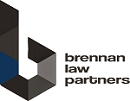Supporting Schools to Thrive and Critical Incident Planning
COVID-19 is a tragedy to humankind. Not only in the form of the illness itself but also in the current and emerging trail of economic destruction that will leave widespread unrest. Businesses all over the world are already suffering the effects of the pandemic which are far reaching and ever evolving. Whilst it is necessary in this critical emergency to deal with the immediate crisis it is also imperative to forward plan to ensure the success of your school and the delivery of education more broadly. Schooling is essential for our society to thrive and so it is important now more than ever to stay calm, plan and act.
This BLP Brief is dedicated to clarifying the needs of your organisation through the lens of this disaster to ensure that your schools not only survive but thrive.
A successful school
As a principal you are undoubtedly under enormous pressure at the moment. Please ensure you are taking care of your physical and emotional wellbeing so you have capacity to tackle not only the immediate crisis but this rebuilding journey. We are here with you every step of the way.
We understand that your pressure is not only about keeping everyone safe but about the future of your school. As school leaders you do not have the luxury of merely closing your gates. Rather your obligations are multifaceted and complex. Your school, like any business, however, is an enterprise that needs to plan for survival. Some stresses you may currently be facing include:
- Issues with cash flow. As Australia is facing a recession, school fees are likely to be impacted. How can you survive with limited income? What savings does the school have? Where can you cost cut? We are in unprecedented territory. We cannot make assumptions that anything will return to pre-COVID-19 status.
- Workforce strain. If staff are absent due to illness, isolation or fear, can you continue to service your students? Who can work from home? Are there policies to protect other staff and students? Are there policies to protect staff that are absent and requiring care (to themselves or to others).
- Student enrolment. If students are isolated, unwell or kept away what does this mean for continual survival of schooling? What does the future of education services look like?
- Supply chains. What equipment, supplies and services do you require for the success of your school? How will these be compromised? What is essential to successful provision of education? What innovative solutions are available?
- Ongoing health concerns. After a disaster there is often ongoing mental health concerns. As a school, can you support staff and students to cope with these concerns?
- Communication. What can I say? What should I be doing? Why aren’t I receiving more frequent or clearer guidance? It is a time of confusion and concern for so many. The only thing you can do is communicate what you know. Only relay information that is reliable and try to contain hysteria among staff and students. Remember sometimes people appreciate any communication even if it merely states that there is no known update at this time.
- Review Crisis Management Plan. COVID-19 is testing even the most well considered plans. If you don’t have a plan, it is essential to create and implement one running through the possible variables associated with this disaster.
- Proactive Communication. Keep your community as updated as possible with the goings-on so as to restore some sense of order and reliability. Ensure that your lines of communication are clearly established so that messages are getting to and from you clearly and promptly.
- Assess your workforce. As part of the Management Plan you should be considering the obligations you have to employees, including what to do if they are required to work remotely.
- Consider your supply chain and conduct an audit of what is available to you. For example, do you have all necessary resources to continue your school? What about if all students were schooled remotely?
- Global mobility. Do you have international students? How are these students affected? Do you have staff on Visas that are likely to expire during a period of isolation or travel restriction?
- Continuation of education. Schools should run as best as they can for as long as they can. Focus on innovation and an opportunity to grow strategies in the way education is delivered.
- Plan for innovation. Could your school run remotely? Start to investigate required platforms and resources.
- Assess funds. What money is available to you? Are there emergency funding options? How can your Parish support you and your staff?
- Consider tax implications of working condition changes. The ATO has published some guidance here.
- Still consider other risks in running your school.
A silver lining?
This epidemic has forced us to be witness to one of the greatest challenges of the last century yet as the world stops we have the privilege of unique scenes emerging. China is seeing clearer skies since the significant reduction in pollution. Fish and birds are thriving in Venice’s water, previously murky and littered. Mother Nature has forced us to stop in our tracks. This has given us a unique opportunity to evaluate the world we live in, the way we live and our impact on the environment. We will get through this crisis and we will rebuild. Now is the time to make a commitment to the future of education in Victoria, Australia and the world.
Your leadership is more important now than ever. Your decisions and your actions are so important.
In times of crisis good leaders pave the way of the future. Your actions, decisions and demeanour will have a huge impact on your employees’ well-being, the ultimate success of your school’s future and your community at large. Like our AFL Players, you have a job to do. People are looking to you for certainty, for normality and for guidance.
What is required of leadership in a crisis? Four core principals:
- Put people first, listen to their needs and concerns
- Paint a vision of getting to the other side of the crisis
- Empower others, so that everyone can do their part and contribute their skills
- Acknowledge that these times are highly emotional for all of us
How can Brennan Law Partners assist?
- Developing and assessing crisis and response plans
- Supporting future planning
- Designing timely and targeted communications
As a starting point, is essential for your school to have and be able to effectively implement Emergency Action Plans and Safe School Plans. If you have any questions about your existing policies, need a new or supplementary policy or are unsure what you should do at this time let us support you. It is also a good time to critically evaluate your future on a worst case scenario basis. We are committed to continuing to provide more detailed information about the future of Catholic primary schools and relevant resources.
We are also here to support any communication or official school releases you are providing to parents. We are available to talk to anytime, be it during school hours or after hours by phone, email or video conference.
If you have any questions regarding any information in this BLP Brief, we welcome you to contact us at any time.
This is meant as a guide only and should not be taken as legal advice.







